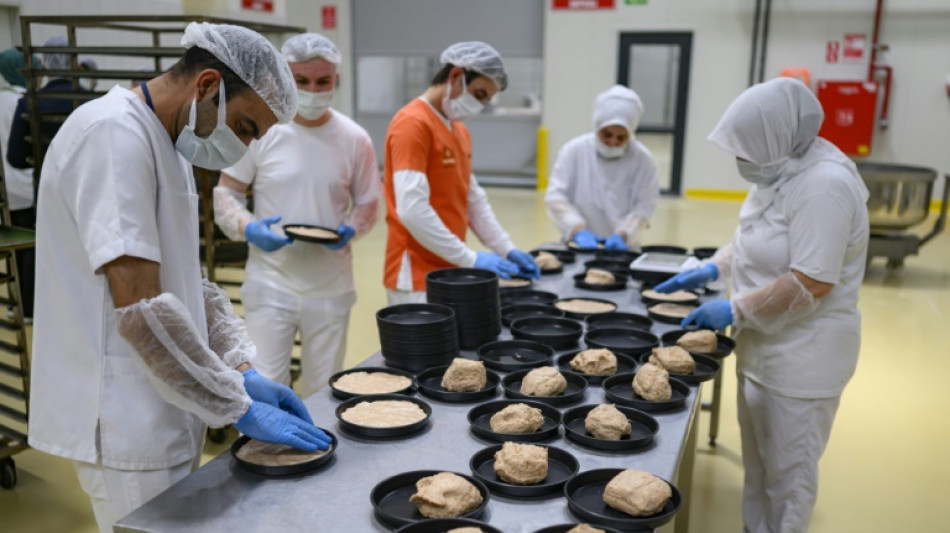
-
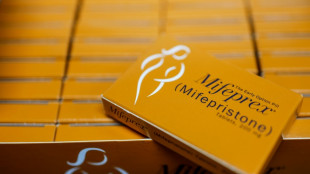 US regulator approves new generic abortion pill, conservatives outraged
US regulator approves new generic abortion pill, conservatives outraged
-
'Resentment': Synagogue attack shocks Manchester Jewish community
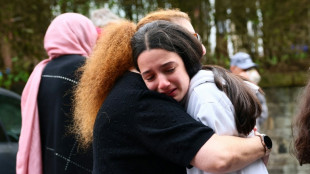
-
 Villa win in Europa League as Forest and Scottish clubs lose
Villa win in Europa League as Forest and Scottish clubs lose
-
US farmers hit by trade war to get 'substantial' aid: Treasury chief
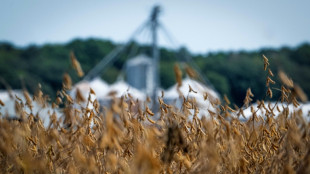
-
 'Terrorist attack' on UK synagogue kills two: police
'Terrorist attack' on UK synagogue kills two: police
-
Trump declares 'armed conflict' with drug cartels

-
 Pulisic, McKennie headline US squad for October friendlies
Pulisic, McKennie headline US squad for October friendlies
-
Rallies against Israel interception of Gaza flotilla sweep Europe
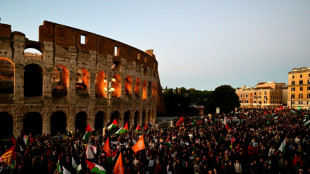
-
 Trump ally threatens immigration sweep at Bad Bunny Super Bowl show
Trump ally threatens immigration sweep at Bad Bunny Super Bowl show
-
Putin vows 'significant' response as tension with Europe flares
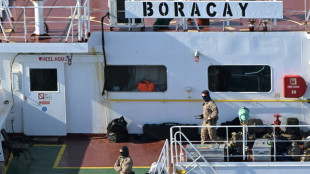
-
 Unbeaten Eagles still seeking answers in NFL clash with Broncos
Unbeaten Eagles still seeking answers in NFL clash with Broncos
-
Boom or bubble: How long can the AI investment craze last?

-
 Two killed in UK synagogue 'terrorist attack' on Yom Kippur
Two killed in UK synagogue 'terrorist attack' on Yom Kippur
-
Israel PM praises navy for intercepting Gaza bound flotilla

-
 Kenya president vows more 'professionalism' in anti-doping agency
Kenya president vows more 'professionalism' in anti-doping agency
-
US Treasury chief says 'fully prepared' to support struggling Argentina

-
 Blinken says Biden laid groundwork for Trump's Gaza plan
Blinken says Biden laid groundwork for Trump's Gaza plan
-
Musk joins 'cancel Netflix' campaign

-
 Bangladesh cruise to win over Pakistan in Women's World Cup
Bangladesh cruise to win over Pakistan in Women's World Cup
-
Tesla car sales lifted by end of US electric auto tax credit

-
 Two dead, four wounded in UK synagogue 'terrorist attack'
Two dead, four wounded in UK synagogue 'terrorist attack'
-
Error 404: 48 hours of confusion in Afghanistan during internet blackout
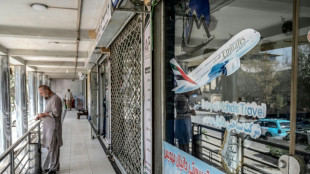
-
 Brazilian music legend Milton Nascimento has dementia: family
Brazilian music legend Milton Nascimento has dementia: family
-
Relaxed Verstappen has 'nothing to lose' as he hunts down McLarens

-
 FIFA 'cannot solve geopolitical problems' like Gaza, says Infantino
FIFA 'cannot solve geopolitical problems' like Gaza, says Infantino
-
Piastri vows to learn 'tough lessons' after Baku disaster

-
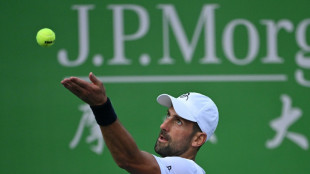 Djokovic says players 'not united enough' over tennis calendar
Djokovic says players 'not united enough' over tennis calendar
-
Days of violent anti-government protests grip Pakistan's Kashmir

-
 Irish singer CMAT delays UK tour over infected wisdom tooth
Irish singer CMAT delays UK tour over infected wisdom tooth
-
Mateta handed France call-up for World Cup qualifiers

-
 Gauff powers into Beijing semi-finals and date with Anisimova
Gauff powers into Beijing semi-finals and date with Anisimova
-
Hamilton thanks 'overwhelming' response to dog Roscoe's death

-
 Trump ramps up pressure on Democrats over US government shutdown
Trump ramps up pressure on Democrats over US government shutdown
-
Gauff says more Slam money 'important' for future of tennis

-
 Strange 'rogue' planet spotted guzzling matter like a star
Strange 'rogue' planet spotted guzzling matter like a star
-
Two dead, three wounded in UK synagogue attack

-
 Germany reviews warship order after delays
Germany reviews warship order after delays
-
Norris says Verstappen 'genuinely a challenger' as F1 title race hots up

-
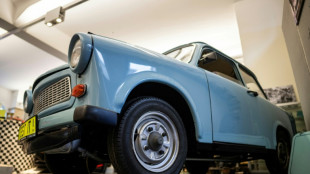 35 years later, beloved East German car still sputters on
35 years later, beloved East German car still sputters on
-
Japan's Arc hopes take a hit with poor draw, Minnie Hauk gets plum stall

-
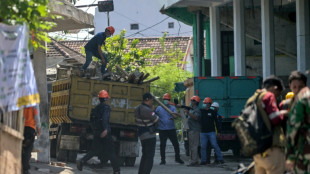 Rescuers say no more signs of life in rubble of collapsed Indonesian school
Rescuers say no more signs of life in rubble of collapsed Indonesian school
-
Barcelona's Camp Nou return delayed again

-
 Israel to deport Gaza flotilla activists
Israel to deport Gaza flotilla activists
-
Contepomi backs inexperienced Argentina playmakers against Springboks

-
 Four wounded, suspect shot in Manchester synagogue attack
Four wounded, suspect shot in Manchester synagogue attack
-
Depardieu sues French broadcaster over report that sped up downfall
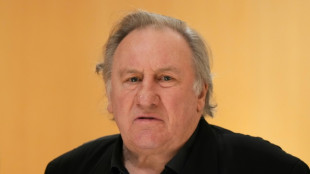
-
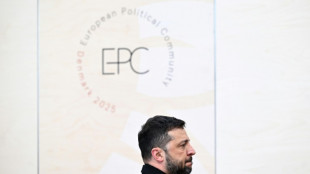 Zelensky warns Europe Russia looking to 'escalate' war
Zelensky warns Europe Russia looking to 'escalate' war
-
Spain hosts record number of summer tourists
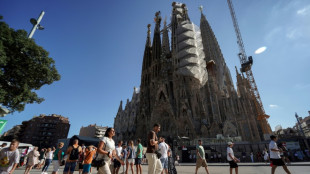
-
 OpenAI valuation soars to $500 bn in private share sale: reports
OpenAI valuation soars to $500 bn in private share sale: reports
-
Argentina scrum-half Cruz to start against Springboks


Ancient bread rises again as Turkey recreates 5,000-year-old loaf
In the early Bronze Age, a piece of bread was buried beneath the threshold of a newly built house in what is today central Turkey.
Now, more than 5,000 years later, archaeologists have unearthed it, and helped a local bakery to recreate the recipe -- with customers lining up to buy it.
Round and flat like a pancake, 12 centimetres (five inches) in diameter, the bread was discovered during excavations at Kulluoba, a site near the central Anatolian city of Eskisehir.
"This is the oldest baked bread to have come to light during an excavation, and it has largely been able to preserve its shape," said Murat Turkteki, archaeologist and director of the excavation.
"Bread is a rare find during an excavation. Usually, you only find crumbs," he told AFP.
"But here, it was preserved because it had been burnt and buried," he said.
The bread was charred and buried under the entrance of a dwelling built around 3,300 BC.
A piece had been torn off, before the bread was burnt, then buried when the house was built.
"It makes us think of a ritual of abundance," Turkteki said.
- 'Moved by this discovery' -
Unearthed in September 2024, the charred bread has been on display at the Eskisehir Archaeological Museum since Wednesday.
"We were very moved by this discovery. Talking to our excavation director, I wondered if we could reproduce this bread," said the city's mayor, Ayse Unluce.
Analyses showed that the bread was made with coarsely ground emmer flour, an ancient variety of wheat, and lentil seeds, with the leaf of an as yet undetermined plant used as yeast.
Ancient emmer seeds no longer exist in Turkey.
To get as close as possible to the original recipe, the municipality, after analysing the ancient bread, decided to use Kavilca wheat, a variety that is close to ancient emmer, as well as bulgur and lentils.
At the Halk Ekmek bakery (meaning "People's Bread" in Turkish), promoted by the municipality to offer low-cost bread, employees have been shaping 300 loaves of Kulluoba by hand every day.
"The combination of ancestral wheat flour, lentils and bulgur results in a rich, satiating, low-gluten, preservative-free bread," said Serap Guler, the bakery's manager.
The first Kulluoba loaves, marketed as 300-gramme (11-ounce) cakes that cost 50 Turkish lira (around $1.28), sold out within hours.
"I rushed because I was afraid there wouldn't be any left. I'm curious about the taste of this ancient bread," said customer Suzan Kuru.
- Drought resistant -
In the absence of written traces, the civilisation of Kulluoba remains largely mysterious.
In the Bronze Age, the Hattians, an Anatolian people who preceded the Hittites, lived in the Eskisehir region.
"Kulluoba was a medium-sized urban agglomeration engaged in commercial activities, crafts, agriculture and mining. There was clearly a certain family and social order," said archaeologist Deniz Sari.
The rediscovery of the bread has sparked interest in the cultivation of ancient wheats better adapted to drought.
Once rich in water sources, the province of Eskisehir is today suffering from drought.
"We're facing a climate crisis, but we're still growing corn and sunflowers, which require a lot of water," said Unluce, the local mayor.
"Our ancestors are teaching us a lesson. Like them, we should be moving towards less thirsty crops," she added.
The mayor wants to revive the cultivation of Kavilca wheat in the region, which is resistant to drought and disease.
"We need strong policies on this subject. Cultivating ancient wheat will be a symbolic step in this direction," she said.
"These lands have preserved this bread for 5,000 years and given us this gift. We have a duty to protect this heritage and pass it on."
H.Gerber--VB
